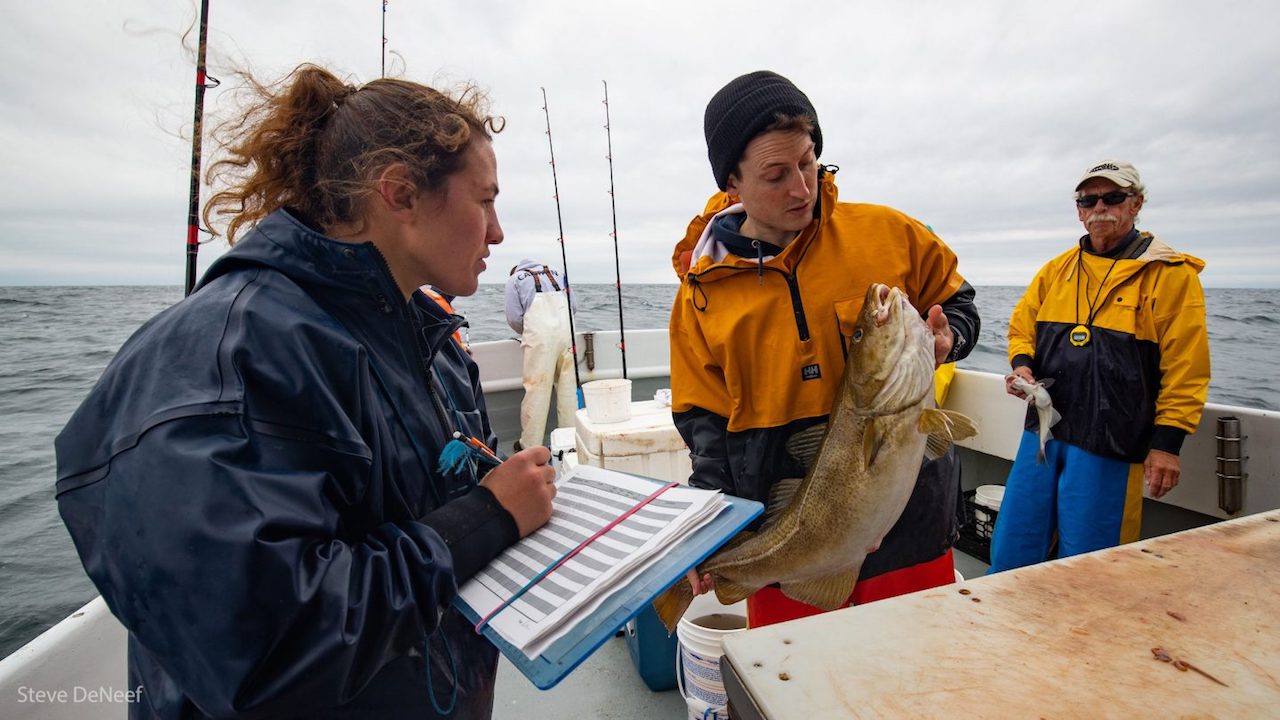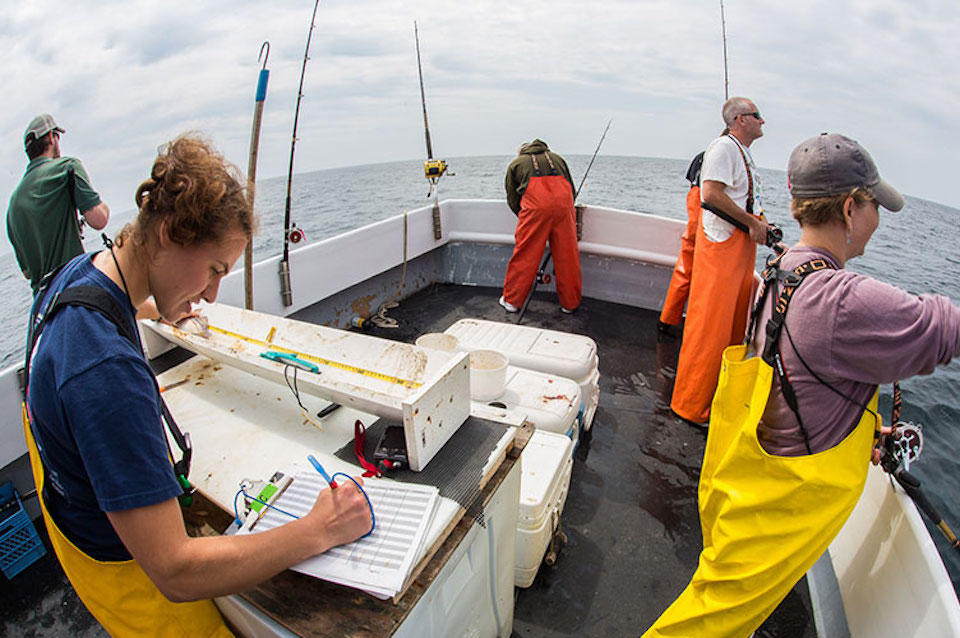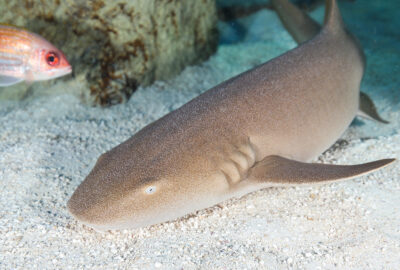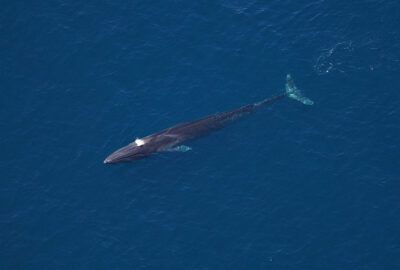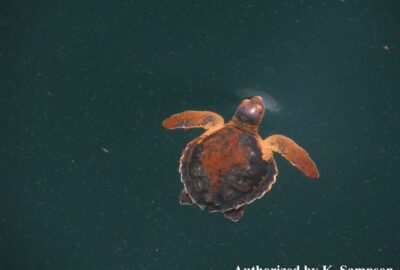FSET Team Partners with Mass Marine Fisheries on Best Practices
Fishing is fun, and individual anglers can and do make a difference in keeping stocks healthy!
By New England Aquarium on Tuesday, May 14, 2019

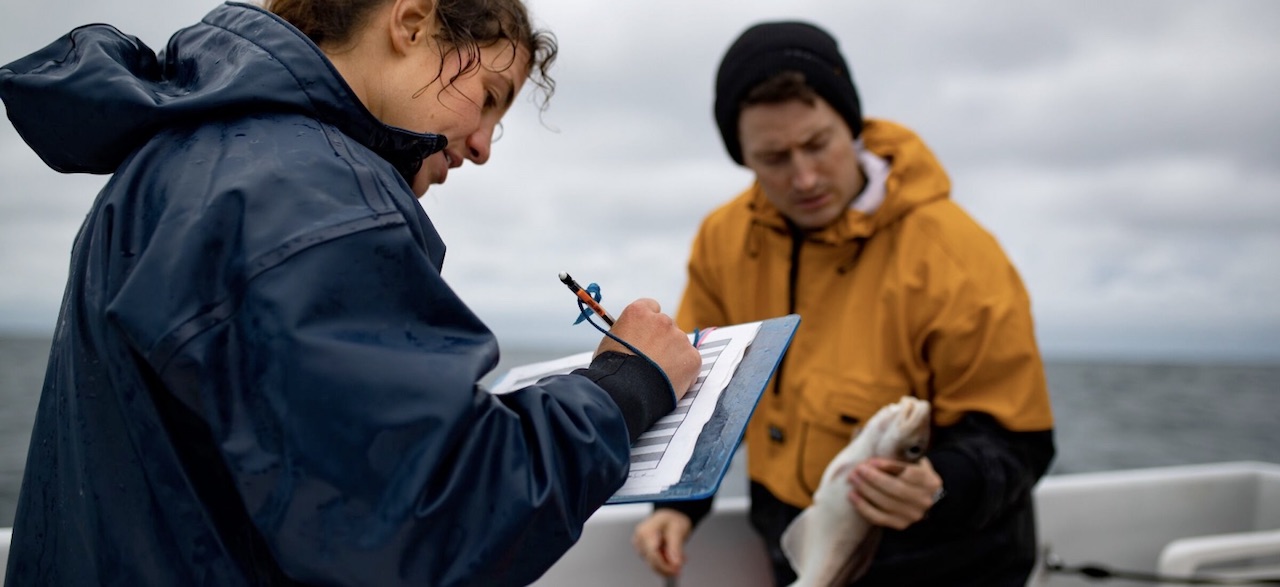
By
Our Fisheries Science and Emerging Technologies (FSET) Team has partnered with the recreational fishing industry, Mass Marine Fisheries, Rutgers, and UMass Dartmouth School of Marine Science and Technology to develop guidelines that keeps anglers fishing while keeping Gulf of Maine fish stocks healthy and sustainable. The Gulf of Maine Haddock Best Practice Recommendations not only improves an individual angler’s success rate for catching haddock, but supports the preservation of local cod populations.
The guidelines are based on several years of research on release mortality among the cornerstone species of the Gulf of Maine recreational groundfish fishery.
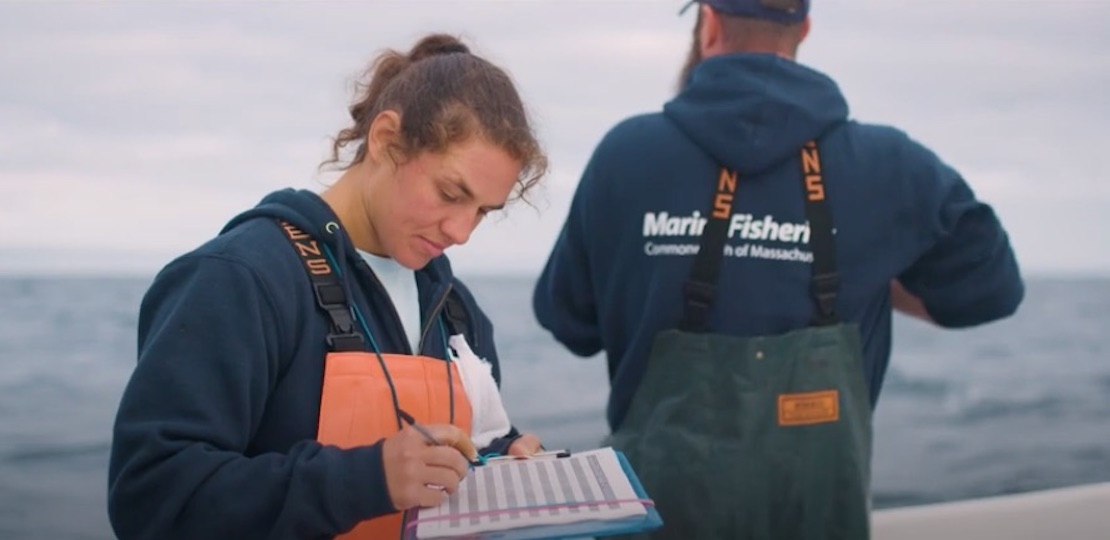
Recreational Groundfish Research in the Gulf of Maine
For several years, Marine Fisheries, the New England Aquarium's Anderson Cabot Center, Rutgers, and UMass Dartmouth have partnered with the recreational fishery industry to study release mortality in the Gulf of Maine so we can understand how best to keep fish stocks healthy and keep everyone fishing!
These simple recommendations help recreational anglers participate in the preservation of fish stocks while ensuring a great day on the water:
Key Recommendations
1. If you are catching cod, move to a new location.
- All cod caught in the Gulf of Maine must currently be thrown back. Don’t waste your bait on them!
2. Fish with bait, not with jig.
- You will help preserve fish populations. Cod and haddock caught with bait have a higher survival rate after being released than fish caught with a jig.
- Your catch rates will be higher! You will double your catch rate of haddock if you use baited hooks instead of a jig.
- It will help you avoid cod. You are more than 2.5 times more likely to catch haddock than cod when using baited hooks.
3. If you are new to fishing, ask for help.
- Experienced anglers can get a fish back in nearly half the time as an inexperienced angler.
- Inexperienced anglers take more than 1.5 times longer to unhook fish than experienced anglers.
- Unhooking times for experienced anglers are about 40% lower than inexperienced anglers.
/
Learn more about the FSET Team!

